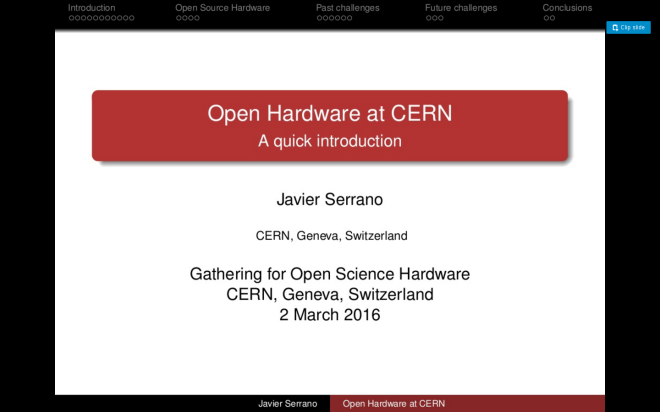Join us on Wednesday, February 19 at noon Pacific for the Open-Source Neuroscience Hardware Hack Chat with Dr. Alexxai Kravitz and Dr. Mark Laubach!
There was a time when our planet still held mysteries, and pith-helmeted or fur-wrapped explorers could sally forth and boldly explore strange places for what they were convinced was the first time. But with every mountain climbed, every depth plunged, and every desert crossed, fewer and fewer places remained to be explored, until today there’s really nothing left to discover.
Unless, of course, you look inward to the most wonderfully complex structure ever found: the brain. In humans, the 86 billion neurons contained within our skulls make trillions of connections with each other, weaving the unfathomably intricate pattern of electrochemical circuits that make you, you. Wonders abound there, and anyone seeing something new in the space between our ears really is laying eyes on it for the first time.
But the brain is a difficult place to explore, and specialized tools are needed to learn its secrets. Lex Kravitz, from Washington University, and Mark Laubach, from American University, are neuroscientists who’ve learned that sometimes you have to invent the tools of the trade on the fly. While exploring topics as wide-ranging as obesity, addiction, executive control, and decision making, they’ve come up with everything from simple jigs for brain sectioning to full feeding systems for rodent cages. They incorporate microcontrollers, IoT, and tons of 3D-printing to build what they need to get the job done, and they share these designs on OpenBehavior, a collaborative space for the open-source neuroscience community.
Join us for the Open-Source Neuroscience Hardware Hack Chat this week where we’ll discuss the exploration of the real final frontier, and find out what it takes to invent the tools before you get to use them.
Our Hack Chats are live community events in the Hackaday.io Hack Chat group messaging. This week we’ll be sitting down on Wednesday, February 19 at 12:00 PM Pacific time. If time zones have got you down, we have a handy time zone converter.
science
Friday Hack Chat: Open Hardware For Science
From Brian Benchoff on the Hackaday blog:
Friday Hack Chat: Open Hardware For Science
Scientific equipment is expensive. It can cost hundreds of thousands of dollars to set up a lab. Simply the cost of machines, like data acquisition units or even a simple load cell, can cost hundreds of dollars. This makes research cost prohibitive, and that’s the case even if you do spend a dozen hours a week writing grant proposals. Citizen science is right out, because the cost of the tools to do science is so high.
For this week’s Hack Chat, we’re going to be talking about Open Hardware for science. This is the chat that’s all about Open Source equipment, hardware modular electronics, and Open designs to make the tools that make science.
Our guest for this week’s Hack Chat is [Dr. Alexxai Kravitz]. He has a PhD in Neuroscience from UPenn and completed a postdoc at the Gladstone Institutes in San Fransisco. [Lex]’s research focuses on understanding the reward circuitry in the brain, and his publications use a variety of experiments to examine this, including behavioral testing, in vivo electrophysiology, and optogenetics.
For this Hack Chat, we’re going to about how Open Source has made more science possible. Of note, we’ll be discussing:
- What Open Source science equipment is being used today
- The initiatives behind Open Source Hardware for science applications
- Scientific application that could benefit from Open Hardware
You are, of course, encouraged to add your own questions to the discussion. You can do that by leaving a comment on the Hack Chat Event Page and we’ll put that in the queue for the Hack Chat discussion.
DIY Scanning tunneling microscope
MatthiasR is building a scanning tunneling microscope:
DIY Scanning tunneling microscope
At the end of last year i started collecting information about needed system components like the vibration isolation, the tunneling current amplifier, the z-height controller, the coarse approach mechanism and so on
Here’s a video of his DIY vibration isolation system:
Gathering for Open Science Hardware
The Gathering for Open Science Hardware (GOSH) is new annual conference for those building and using Open Source Hardware (OSHW) for scientific research:
The GOSH movement seeks to reduce barriers between diverse creators and users of scientific tools to support the pursuit and growth of knowledge.
Open Hardware at CERN – a quick introduction
GOSH 2016 Day 1 part 1: Grand Challenges
GOSH 2016 Day 1 part 2: Grand Challenges
You can apply to attend GOSH 2017, 22-25 March 2017 at the Innovation Centre at Pontificia Universidad Católica de Chile in Santiago, Chile:
GOSH 2017 Application Form
Portland Science Hack Day begins tonight
Portland Science Hack Day at XOXO Outpost kicks off tonight after the Open Hardware Summit! Opening Lightning Talks start at 7:15 pm:
Here are my slides on Open Source Hardware and Science [PDF]:
Slides are also shared on SlideShare










